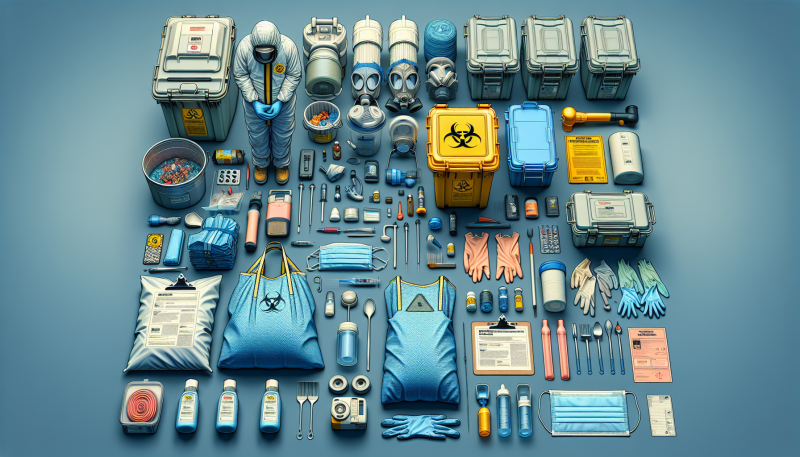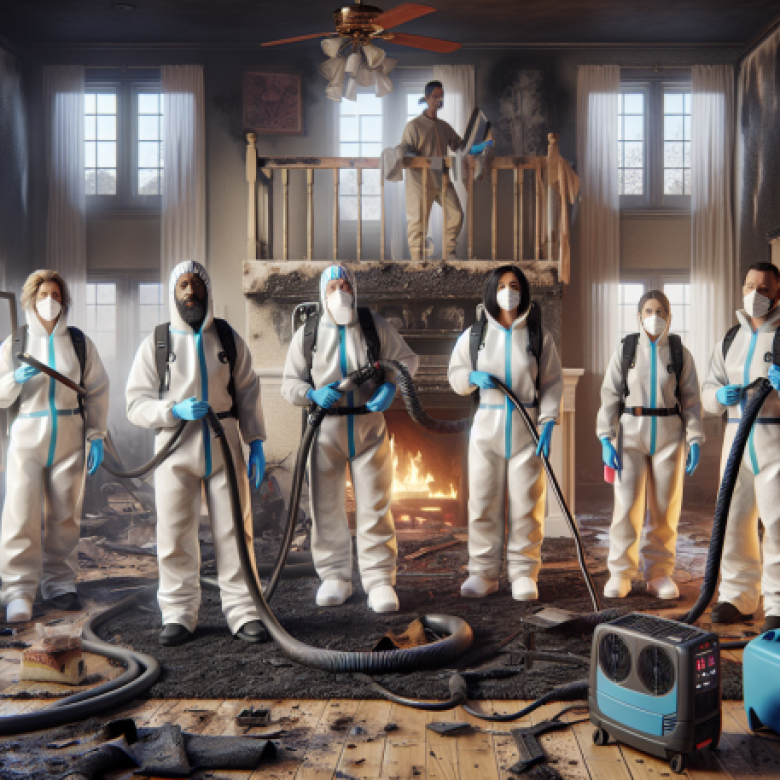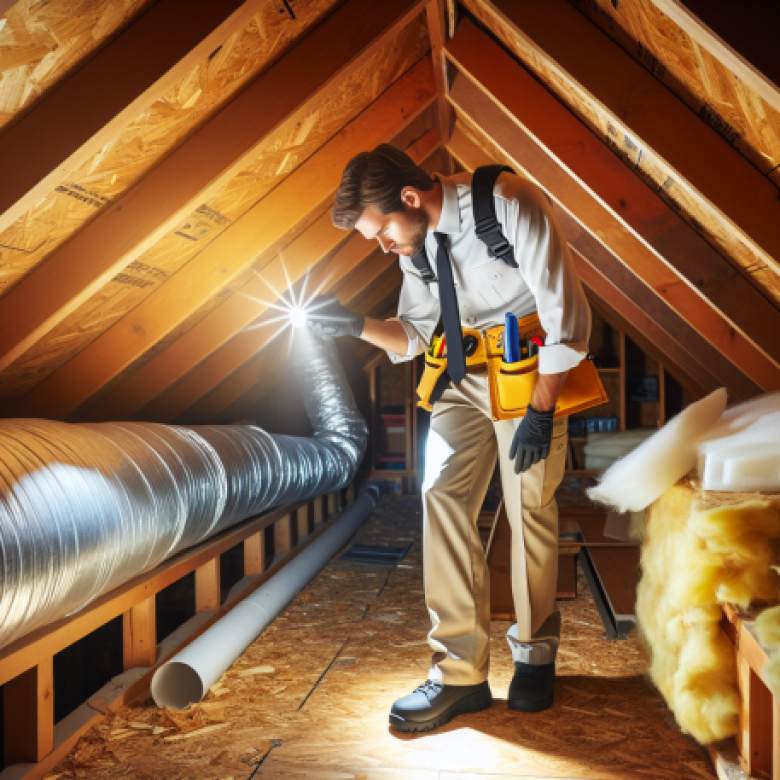Biohazard Disposal Methods: Ensuring Safety and Compliance
When it comes to biohazard clean up, understanding the proper disposal methods is crucial. Whether you’re dealing with a commercial property restoration or a residential property restoration, the stakes are high. Biohazardous materials can pose serious health risks if not handled correctly. This comprehensive guide will walk you through the various biohazard disposal methods, ensuring you stay compliant and safe.
What Are Biohazardous Materials?
Biohazardous materials are substances that pose a threat to human health or the environment. These can include medical waste, chemicals, and biological agents. Proper disposal is essential to prevent contamination and spread of disease.
Why Proper Disposal Matters
Improper disposal of biohazardous materials can lead to severe consequences, including environmental damage, legal repercussions, and health risks. It’s not just about following the law; it’s about protecting people and the planet.
Types of Biohazardous Waste
Medical Waste
Medical waste includes items like needles, syringes, and contaminated gloves. These materials must be disposed of in specific containers to prevent injury and contamination.
Chemical Waste
Chemical waste can be hazardous if not handled correctly. This includes substances like cleaning agents, laboratory chemicals, and industrial solvents.
Biological Agents
Biological agents include bacteria, viruses, and other microorganisms that can cause disease. Proper disposal is crucial to prevent outbreaks and contamination.
Biohazard Disposal Methods
Incineration
Incineration is one of the most effective methods for disposing of biohazardous waste. It involves burning the waste at high temperatures, effectively destroying harmful pathogens.
Autoclaving
Autoclaving uses steam and pressure to sterilize biohazardous materials. This method is commonly used in medical settings to ensure the complete destruction of pathogens.
Chemical Disinfection
Chemical disinfection involves using chemicals to neutralize biohazardous materials. This method is often used for liquid waste and surfaces contaminated with biological agents.
Landfill Disposal
Certain types of biohazardous waste can be disposed of in landfills, provided they are treated and rendered non-hazardous first. This method is regulated to ensure environmental safety.
Deep Burial
Deep burial is a method used for disposing of biohazardous waste in remote areas. The waste is buried deep underground to prevent contamination of surface water and soil.
Projekt Property Restoration: Your Biohazard Clean Up Experts
Projekt Restoration is your go-to water, fire, & mold restoration experts. We also offer mold assessment, biohazard cleanup, and reconstruction services. Our team is trained in the latest biohazard disposal methods to ensure your property is safe and compliant.
Commercial Property Restoration
When it comes to commercial property restoration, time is of the essence. Biohazardous materials can disrupt business operations and pose health risks to employees and customers. Our team is available 24/7 to handle any emergency clean-up needs.
Residential Property Restoration
Residential property restoration requires a delicate touch. Biohazardous materials in a home setting can be particularly distressing. We offer compassionate and professional services to restore your home to a safe and livable condition.
Water Damage Restoration
Water damage can lead to biohazardous conditions, such as mold growth and contamination. Our water damage restoration services include thorough cleaning and disinfection to ensure your property is safe.
Mold Assessment and Remediation
Mold can pose serious health risks if not properly addressed. Our mold assessment and remediation services include thorough inspection and removal of mold, ensuring your property is safe and healthy.
Fire Damage Restoration
Fire damage can result in the release of hazardous materials, such as asbestos and chemicals. Our fire damage restoration services include the safe removal and disposal of these materials.
Biohazard Clean Up
Biohazard clean up requires specialized training and equipment. Our team is equipped to handle a wide range of biohazardous materials, ensuring your property is safe and compliant with all regulations.
Low Pricing
We understand that biohazard clean up can be costly. That’s why we offer low pricing without compromising on quality. Our goal is to provide affordable and effective services to our clients.
Insurance Claims Assistance
Navigating insurance claims can be a daunting task. We offer insurance claims assistance to help you get the coverage you need for biohazard clean up and restoration services.
24/7 Emergency Services
Biohazard emergencies can happen at any time. That’s why we offer 24/7 emergency services to ensure your property is safe and secure, no matter the time of day.
How to Choose a Biohazard Clean Up Company
Experience and Expertise
When choosing a biohazard clean up company, it’s essential to consider their experience and expertise. Look for companies with a proven track record in handling biohazardous materials.
Certifications and Training
Ensure the company you choose has the necessary certifications and training to handle biohazardous materials. This includes OSHA and EPA certifications.
Customer Reviews
Customer reviews can provide valuable insight into a company’s reliability and quality of service. Look for companies with positive reviews and testimonials.
Comprehensive Services
Choose a company that offers comprehensive services, including biohazard clean up, restoration, and reconstruction. This ensures all your needs are met in one place.
The Importance of Compliance
Compliance with local, state, and federal regulations is crucial when dealing with biohazardous materials. Failure to comply can result in hefty fines and legal repercussions.
Training and Certification for Biohazard Clean Up
Proper training and certification are essential for anyone involved in biohazard clean up. This ensures they are equipped to handle hazardous materials safely and effectively.
Personal Protective Equipment (PPE)
Personal protective equipment (PPE) is crucial for anyone handling biohazardous materials. This includes gloves, masks, and protective clothing to prevent exposure.
Safe Handling Procedures
Safe handling procedures are essential to prevent contamination and injury. This includes proper labeling, storage, and transportation of biohazardous materials.
Decontamination Procedures
Decontamination procedures are crucial to ensure all biohazardous materials are safely removed and the area is thoroughly cleaned. This includes using appropriate disinfectants and cleaning methods.
Disposal of Sharps
Sharps, such as needles and syringes, pose a significant risk if not disposed of correctly. They should be placed in designated sharps containers and disposed of according to regulations.
Disposal of Liquid Waste
Liquid waste, such as blood and bodily fluids, must be disposed of using appropriate methods, such as chemical disinfection or autoclaving.
Disposal of Solid Waste
Solid waste, such as contaminated clothing and equipment, should be placed in designated biohazard bags and disposed of according to regulations.
Transportation of Biohazardous Materials
Transportation of biohazardous materials must be done using appropriate containers and labeling to prevent spills and contamination.
Record Keeping and Documentation
Proper record keeping and documentation are essential for compliance and tracking the disposal of biohazardous materials. This includes maintaining logs and disposal records.
FAQs
What is biohazard clean up?
Biohazard clean up involves the safe removal and disposal of hazardous materials, such as medical waste, chemicals, and biological agents.
Why is proper disposal of biohazardous materials important?
Proper disposal is crucial to prevent contamination, spread of disease, and environmental damage.
What are the different methods of biohazard disposal?
Common methods include incineration, autoclaving, chemical disinfection, landfill disposal, and deep burial.
How do I choose a biohazard clean up company?
Look for companies with experience, certifications, positive customer reviews, and comprehensive services.
What is PPE, and why is it important?
Personal protective equipment (PPE) includes gloves, masks, and protective clothing. It is essential for preventing exposure to hazardous materials.
What should I do in case of a biohazard emergency?
Contact a professional biohazard clean up company immediately. They offer 24/7 emergency services to handle the situation safely.
Conclusion
Proper biohazard disposal methods are essential for ensuring safety and compliance. Whether you’re dealing with a commercial property restoration or a residential property restoration, it’s crucial to handle biohazardous materials correctly. Projekt Restoration offers comprehensive biohazard clean up services, including mold assessment and remediation, fire damage restoration, and water damage restoration. With our expertise and commitment to safety, you can trust us to handle all your biohazard clean up needs.
For more information, visit our website at Projekt Restoration.





